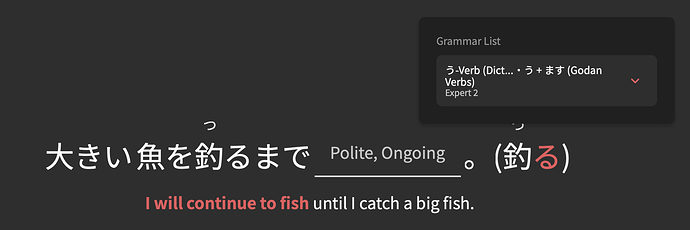As I posted here, I frequently fail a grammar lesson, even when I got the meat of the lesson correct, because I got a base conjugation wrong (usually I failed to recognize that a verb ending in る was a Godan verb, or that an adjective ending in い was actually a な adjective). Which leads me to a number of questions (both for myself and for all of you).
How should I handle such a failure? Usually I undo/redo it, essentially giving myself credit since the verb/adjective categorization was not what I was being quizzed on. But it still makes me feel dirty.
Where/how should I learn verb and adjective categorizations? Particularly the two weird cases I mentioned above (irregular Godan verbs and な adjectives). I own Genki and many other classic resources, but I seem to make much better and more consistent use of my time using my two primary SRS apps: WK and BP. And while I always knew these two apps alone wouldn’t be enough to truly master Japanese, I thought they would get me a long way. Now I’m realizing that “long way” is shorter than I thought, since this “categorization” issue is making me feel clueless when completing sentences that I would otherwise have mastered. Is there an SRS resource dedicated to this topic?
Should Bunpro handle this differently? One idea is that it could (optionally) reveal to the user the correct categorization, so we’re only actually tasking ourselves with conjugation/grammar, NOT trying to figure out the categorization of the verb/adjective (which is arguably a vocab detail which should not be required to pass a grammar lesson). Thoughts?

